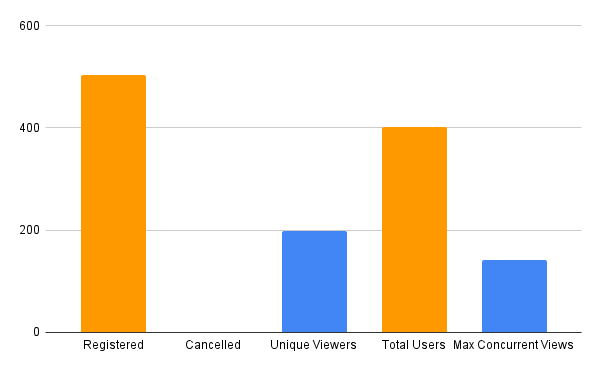

Research Highlights Across Pakistan
The webinar, Research Highlights Across Pakistan was organized by Shaukat Khanum Memorial Cancer Hospital and Research Center in collaboration with the Global Health Network Asia, bringing together experts to discuss the current state, challenges, and opportunities in clinical research in Pakistan.
Panelists
Dr. Ayesha Humayun
- Principal at Shaikh Khalifa Bin Zayed Al-Nahyan Medical College, SZPGMI, Lahore.
- Head of Public Health & Community Medicine and Director CTU at Shaikh Zayed PGMI, Lahore.
- Fellow of the College of Physicians and Surgeons Pakistan.
- PhD in Community Medicine with over 120 publications and 27,000+ citations.
- WHO-TDR grantee and member of Stanford University’s top 2% scientists.
Dr. Baber Saeed Khan
- Founding president of ACRP Ambassadors Club of Pakistan.
- Director of Clinical Trial Unit, National University of Medical Sciences (NUMS).
- National consultant for WHO project on patient safety and quality care.
- Conducted 72 clinical trials under FDA regulations in the USA.
- Certified Principal Investigator from ACRP and Fellow of the American Physicians of Clinical Research (FAPCR).
Dr. Sadiq Naveed
- Psychiatry Program Director at Eastern Connecticut Health Network, Connecticut
- Associate Professor of Psychiatry at the University of Connecticut School of Medicine
- Associate Professor of Psychiatry at Frank H. Netter School of Medicine, Quinnipiac University, Connecticut
- Chairperson of APPNA MERIT
- Medical School: Nishtar Medical University, Multan, Pakistan
- Masters in Public Health: Benedictine University, IL
- General Psychiatry Residency
- Child and Adolescent Psychiatry Fellowship
- Published several peer-reviewed articles and book chapters
Discussion
Dr. Baber Saeed Khan
- Key Contributions:
- Empowering Patients: Emphasized that clinical trials go beyond research—they empower patients by increasing their access to innovative treatments and specialized care.
- Global & Local Trends: Discussed the global growth of clinical research (projected to cross the US$100 billion mark by 2030) and highlighted how Pakistan’s large, genetically diverse population, coupled with a high disease burden (communicable, non-communicable, and injury-related), makes it an attractive site.
- Cost Efficiency & Infrastructure: Noted the benefits of lower operational costs and faster patient recruitment timelines in Pakistan, along with ongoing improvements in regulatory processes and infrastructure.
- Future Initiatives: Mentioned upcoming developments, including plans for dedicated clinical trial facilities and a clinical trial summit aimed at further boosting Pakistan’s profile on the international stage.
Dr. Ayesha Humayun
- Key Contributions:
- Bibliometric Analysis: Provided a data-driven review using PubMed, highlighting that a significant number of clinical trial publications from Pakistan have emerged in the last decade—with a steep increase in the last five years.
- Collaboration & Publication Trends: Analyzed collaboration networks among Pakistani and international institutions, identifying key authors, affiliations, and journals contributing to the field.
- Challenges Identified: Addressed issues such as limited international collaboration, fragmented funding sources, and inadequate capacity building, while stressing the need for better regulatory frameworks.
- Opportunities for Growth: Advocated for increased clinical trial registration, enhanced mentorship, and structured training programs to uplift the quality and global recognition of research emerging from Pakistan.
Dr. Sadiq Naveed
- Key Contributions:
- Data-Driven Landscape: Presented findings from a 2022 clinical research landscape report that evaluated Pakistan’s clinical trial activities in comparison to the global scenario.
- Underrepresentation & Opportunities: Highlighted that despite being the fifth most populous country, Pakistan remains underrepresented in global clinical trials. He discussed trial phases, funding sources, and disease burdens to illustrate both strengths and gaps.
- Capacity Building & Mentorship: Emphasized the critical need for improved infrastructure, robust mentorship programs, and comprehensive capacity-building initiatives to foster a sustainable research culture.
- Call to Action: Urged stakeholders to embrace systematic, process-oriented approaches rather than seeking shortcuts, encouraging a gradual buildup of research expertise and international collaboration.
Attendance
Registration and Attendance data shows that 504 users were registered for the webinar, while only 1 user cancelled. The webinar attracted 198 unique viewers, with a total of 402 users participating. At its peak, the webinar saw 141 concurrent views. This data highlights the high level of engagement, particularly in terms of registration and the number of unique viewers, while also providing insights into the concurrency of the event.
